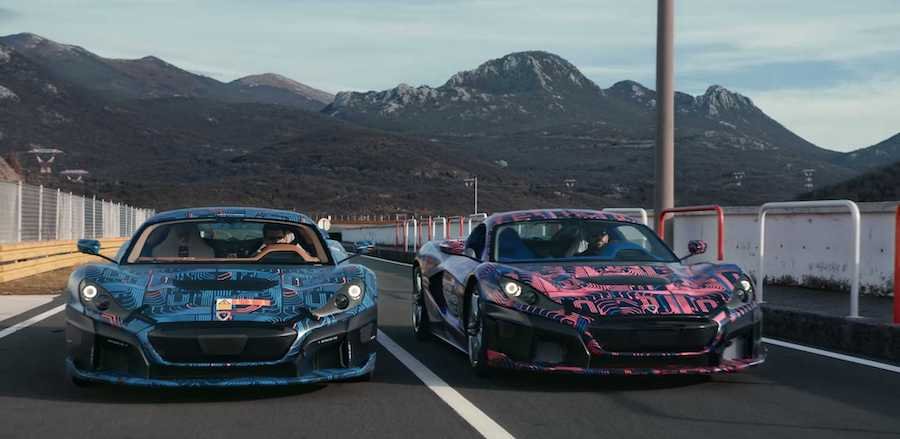Rimac C_Two Will Teach You How To Be A Better Driver Using AI

So you own a fantastic hypercar, drive it to your local supercar meets, maybe do some weekend trips with it, but you don't actually have the chance to extract more performance out of it. A track day is too daunting, and some actual high-performance driving lessons can't seem to fit into a busy schedule? Rimac is coming up with an amazing way that customers can actually communicate with their cars. No, we're not talking about voice commands or digital assistants; we're talking about actual feedback and encouragement. Pioneered by Rimac's autonomous driving division, "Driver Coach" is essentially an artificial intelligence that analyzes tons of data to give you the best way to extract performance on the track. The best part? It can also drive for you.
Rimac's upcoming C_Two has some breathtaking numbers – 1,887 horsepower and a sub-2 second 0 to 62 mph time. There's a lot of power there to get you into trouble in the wrong hands, but there's also a lot of potential to get the most out of your hypercar experience. Top Gear has been talking with Sacha Vrazic, director of Rimac's autonomous driving team, about this interesting concept. "What we are building is a system where AI plays a key role in teaching the driver how to perform on racetracks, at the maximum vehicle performance," Sacha explains. "Not all of our customers are professional drivers, but we want them to really enjoy the car and have fun with it."
The system uses a supercomputer to analyze and store six terabytes of data every hour, gathered from nine onboard cameras, LIDAR, radar, and 12 ultrasonic sensors. Algorithms take care of all the number-crunching to give drivers the most dynamic and personalized experience. Heck, it can even determine if the driver's fear takes over at a braking point after a very long and fast straight, and recommends a new approach by maybe braking earlier to reduce that anxiety, or being able to take over and show the diver how it's done. All of this while it talks to you as it learns the track, and keeps you safe by correcting any driving errors as they happen on the fly.
Also, the system is able to react to other vehicles and objects in real-time, unlike autonomous GPS track cars that are programmed at specific points. "We used professional drivers of course, to help us understand the ideal lap, but the AI can compute a perfect lap as well," Sacha tells us. "Then we put the pro driver lap and what we consider as our (the AI) lap on top of each other, and see the difference. That's a big part."
All of this will be standard on the Rimac C_Two when it is finally launched.
Related News
